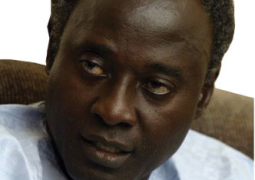The world is seeing signs of progress in reversing the AIDS epidemic in some countries. Investment in the AIDs response are producing results and saving lives, says the UN Secretary-General, Banki Moon.
According to him, in global terms new infections are outpacing the gains achieved in putting people on treatment, while AIDs remains one of the leading causes of premature death globally.
He said "On World AIDs Day this year, our challenge is clear: We must continue doing what works, but we must also do more on urgent basis, to uphold our commitment to reach universal access to HIV prevention, treatment, care and support by 2010."
He maintained that this can be achieved only if we shine the full light of human rights on HIV.
"That means countering any form of HIV-related stigma and discrimination. It means eliminating violence against women and girls. It means ensuring access to HIV information and services," he said.
According to him, in many countries, legal frameworks, institutionalised discrimination against groups at risk, discrimination against sex workers, drug users and men who have sex with men only fuels the epidemic and prevents cost-effective interventions.
He noted that "we must ensure that AIDs responses are based on evidence, not ideology, and reach those most in need and most affected."
"I urge all countries to remove punitive laws, policies and practices that hamper the AIDs response, including travel restrictions against people living with HIV. Successful AIDs response do not punish people; they protect them," he said.
"People living with HIV can be powerful role models in guiding us to better approaches to prevention, health and human dignity. We must recognise their contributions and promote their active participation in all aspects of the AIDs response."
"On this World AIDs Day, let us uphold living with HIV, people at risk of infection, and children and families affected by the epidemic. Let us, especially at this time of economic crisis, use the AIDs response to generate progress towards the Millennium Development Goals. Most of all, let us act now," he concluded.
The Administrator of the United Nations Development Programme (UNDP), Helen Clark, in a statement said the UNDP is playing a lead role in the global response to HIV/AIDS as a co-sponsor of UNAIDS and as a major partner of the Global Fund to Fight AIDs, Tuberculosis, and Malaria.
She added that UNDP also supports the wider UN system's co-ordinated response to the epidemic and organises the annual "Red Ribbon Awards" on behalf UNAIDS to honour and support communities at the frontline of the response of the epidemic.
"With just six years left to reach the 2015 target date for achieving the Millennium Development Goals, we have learned that effective action on HIV/AIDs is essential to the human rights based and broader development agenda," she concluded.


